
The University of Chicago Press, Chicago 60637
The University of Chicago Press, Ltd., London
1994 by The University of Chicago
All rights reserved. No part of this book may be used or reproduced in any manner whatsoever without written permission, except in the case of brief quotations in critical articles and reviews. For more information, contact the University of Chicago Press, 1427 E. 60th St., Chicago, IL 60637.
First Published 1994
Paperback and e-book published 2019
Printed in the United States of America
28 27 26 25 24 23 22 21 20 19 1 2 3 4 5 6
ISBN-13: 978-0-226-48197-2 (cloth)
ISBN-13: 978-0-226-48198-2 (paper)
ISBN-13: 978-0-226-68251-8 (e-book)
DOI: https://doi.org/10.7208/chicago/9780226682518.001.0001
LIBRARY OF CONGRESS CATALOGING-IN-PUBLICATION DATA
Lincoln, Bruce
Authority: construction and corrosion/Bruce Lincoln.
p. cm.
Includes bibliographical references and index.
1. AuthorityHistory. 2. Political oratoryHistory. 3. RhetoricPolitical aspectsHistory. I. Title.
HM271.L53
303.36dc20
94-12514
CIP

This paper meets the requirements of ANSI/NISO Z39.48-1992
(Permanence of Paper).
A UTHORITY
Construction and Corrosion
BRUCE LINCOLN
The University of Chicago Press
Chicago and London
In memory of my father
WILLIAM DANIEL LINCOLN
28 February 192019 November 1992
All authority is in the last analysis the authority of communications.
Carl F. Friedrich
It is the access to the legitimate instruments of expression, and therefore the participation in the authority of the institution, which makes all the differenceirreducible to discourse as suchbetween the straightforward imposture of masqueraders, who disguise a performative utterance as a descriptive or constative statement, and the authorized imposture of those who do the same thing with the authorization and the authority of an institution. The spokesperson is an imposter endowed with the skeptron.
Pierre Bourdieu
CONTENTS
ACKNOWLEDGMENTS
There are many people to thank for their suggestions, criticisms, guidance, and patience. Above all, I am grateful to my closest and most valued colleagues, Louise Lincoln and Cristiano Grottanelli, who read through all of this manuscript and helped me to improve it in countless ways. Others who commented on specific chapters or helped me sort through one issue or another include Wendy Doniger, Richard Leppert, Ron Aminzade, John Archer, Heidar Azodanloo, Aleta Biersack, Jimmy Bishara, Peter Bruder, Doug Catterall, Ruma Chawla, Pietro Clemente, Rita Copeland, Laurie Cozad, Arthur Droge, Bud Duvall, Gary Ebersole, Anne Enke, Paul Friedrich, Clark Gilpin, Paul Griffiths, Kaaren Grimstad, Gary Herrigel, Michael Herzfeld, Ted Huters, Allen Isaacman, Lisette Josephides, Bill Malandra, William Marvin, Ellen Messer-Davidow, John Modell, Judy Modell, John Mowitt, Gregory Nagy, Mohamed Ndaou Saidou, Tord Olsson, Sherry Ortner, Carla Pasquinelli, Jim Perkinson, Diego Poli, Gianna Pomata, James Redfield, Martin Riesebrodt, Adam Rose, Martha Roth, Jim Scott, Brian Smith, Jrgen Podemann Srensen, Pier Giorgio Solinas, George Steinmetz, Ulrike Strasser, Larry Sullivan, David Sylvan, Gary Thomas, Hernan Vidal, Marilyn Waldman, David Wallace, Morten Warmind, Luise White, Pauline Yu, Tony Za hareas, and Andrej Zaporogchenko. Institutions that permitted me to present pieces of this book while they were still very much in process include the Universit degli Studi di Macerata, Universit degli Studi di Siena, Kbenhavns Universitetet, Lunds Universitetet, Novosibirsk State Pedagogical Institute, the University of Chicago, and the University of Minnesota. In each instance I benefited greatly from the discussions that followed. For the friendship, support, encouragement, generosity, and criticism of all, I am deeply appreciative.
CONSTRUCTING AUTHORITY
BUYERS, SELLERS, AND AUTHORITIES
In this book, I hope to arrive at an improved understanding of authority, which is somethingan entity? a phenomenon? a status?I have come to see as extraordinarily complex, hopelessly elusive, and almost as badly misconstrued in most scholarly discussions as it is in popular parlance. For although there exists a large literature on this topic, it generally runs in one of three ruts. First, there is the project of those political philosophers of neoconservative bent, who took the turbulence of the 1960s as a crisis of authority in the face of which they sought to reestablish the legitimacy of the liberal democratic state. Then there is the work of those social psychologists whose memories stretch back to events of the 1930s and 1940s, who are more concerned with dangers posed by the state than those posed to it, and who have used a variety of experimental data to point up the widespread tendency of citizens, even in liberal democracies, to follow authoritarian leaders. Finally, there is the set of sociological discussions that involve a fairly conservative manipulation of the typology introduced by Max Weber, in which Webers subtlety and the more brooding, even ironic, qualities of his thought are mostly lost. Two of the three cate gories Weber posited as ideal types are thus rapidly disqualifiedtraditional authority being treated as obsolete, and charismatic authority dangerousleaving legal-rational authority, the system of the modern bureaucratic state, as the only viable game in town.
In general, I have found a number of works not centrally concerned with the issue of authority a good deal more helpful than those which have it as their prime focus. In this vein, I think particularly of the writings of Pierre Bourdieu, Michel Foucault, Mikhail Bakhtin, Maurice Bloch, and James Scott, all of whom, in very different fashions, treat authority as an aspect of discourse and are more attentive to its labile dynamics than to its institutional incarnations. I read them as posing a set of interrelated questions: Who is able to speak with authority? Where and how can one produce authoritative speech? What effect does such speech have on those to whom it is addressed? What responses does such speech anticipate? What responses does it allow? And what consequences can unanticipated and disallowed responses have for the construction, exercise, and maintenance of authority?
Given these initiatives, the time seems right for a radical rethinking of authorityradical in the literal sense of returning to the roots. Such an attempt could begin at any number of points, including the obvious piece of etymological reconnaissance through which English authority is tracked to its source in Latin auctoritas, a word used with many different shades of meaning, usually in connection with the capacity to perform a speech act that exerts a force on its hearers greater than that of simple influence, but less than that of a command. If we are in search of roots, however, we can simplify things somewhat by focusing initially on the sense auctoritas has within legal texts, for there the term makes its first appearance and is used with greatest precision. Four types of legal auctoritas are specified in Roman law, and three of these reflect the capacity to make consequential pronouncements, that is, to take action through acts of speech that hearers will accept out of respect for the speaker and his (never her!) office. These are the authority of the senate


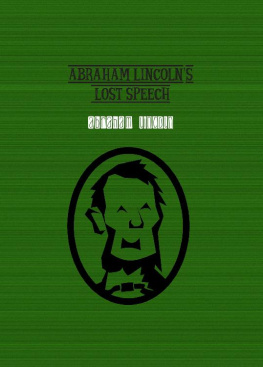
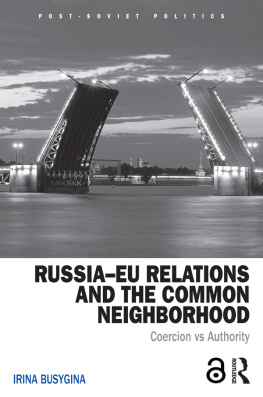
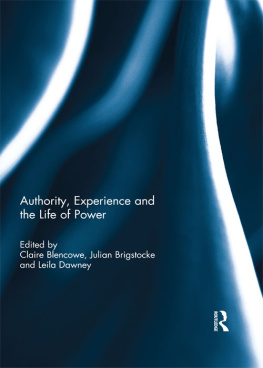
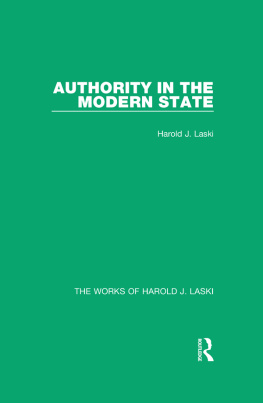
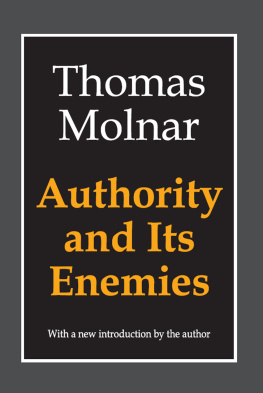
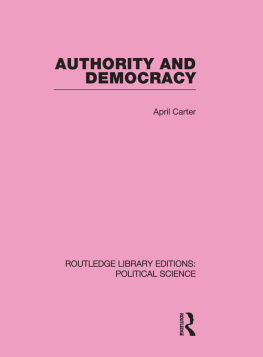
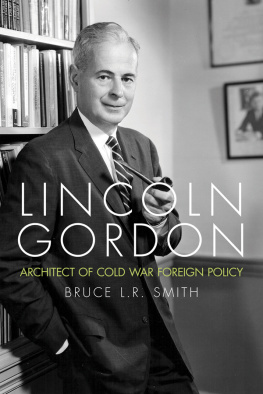
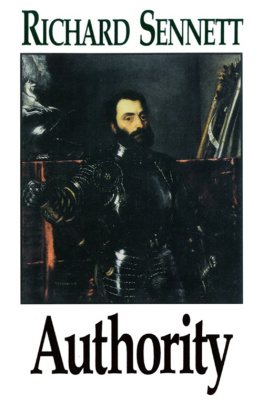

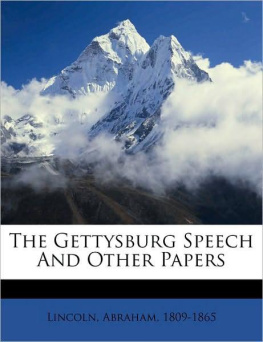

 This paper meets the requirements of ANSI/NISO Z39.48-1992
This paper meets the requirements of ANSI/NISO Z39.48-1992